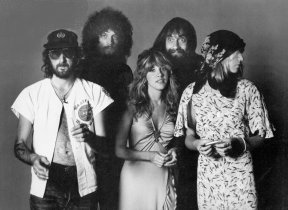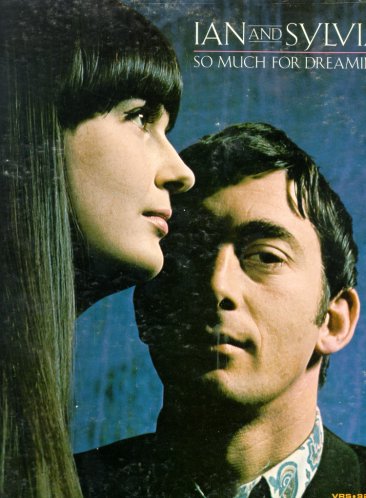Which is it? “Monster Mash”? Theme from “The Exorcist” (Tubular Bells)? “The Man Who Shot Liberty Valance”? “Dirty Deeds Done Dirt Cheap”? “Sympathy for the Devil”?
Nah. The scariest lyrics I have ever heard are those in the sidebar to the right: “You Don’t Own Me”. And you can draw a line from that song through the 60’s and 70’s to Lindsay Buckingham’s “I’m So Afraid”, or, more indirectly, “The Chain”, and you would have the darkest, fiercest, most frightening lyrics imaginable. And unique. Can you think of another song like it?
And please, please, please, in the name of all that is decent and respectful and witty, don’t cite “I am Woman”. (Helen Reddy claimed that she wrote the lyrics while Ray Burton wrote the music; his recollection is that she gave him some scraps of ideas but he is the one who turned it into a set of lyrics and a song. Reddy performed the song at– get this!– the 1981 Miss World competition. Reddy used the money she earned from the song– while repeatedly claiming she “wrote” it– to buy mansions, speedboats, limousines, and jewelry. She squandered almost all of the money and went through an acrimonious divorce in 1982.)
But if you said “I’ve Never Been to Me” is it’s evil twin– it’s polar opposite– damn right!
Now– you may have noticed that this proto-feminist lyric was written by… yes, two men. Turns out that one of them, John Madara, is also associated with the ridiculous “Dawn of Correction”, a song that testifies to the absurdity of it’s own message. Look it up sometime– it’s an answer to “Eve of Destruction”. But don’t mistake it for a right-wing response like Barry Sadler’s “Ballad of the Green Berets”. “Dawn of Correction” points out that things aren’t so bad– we have the Peace Corps, and the United Nations!
So, unsurprisingly, the writer of the most feminist lyric of the 60’s is a liberal.
So what’s so scary about “You Don’t Know Me”? It’s the affront to the most fundamental of all human needs. We often think of it as the need to love. But in it’s naked form, isn’t it really a lot more like the desire to be loved, to be needed, to be indispensable to someone we badly want to be indispensable to?
There is the shock of “don’t say I can’t go out with other boys”– an attack on one of the most fundamental assumptions we hold about love relationships: it’s exclusivity. I don’t need you– so our relationship depends on whether or not I want you. And if I want someone else, I’m not going to allow anything in our existing relationship– the poor boy– to be an impediment to my pursuit of those other relationships.
It gets worse! “Don’t try to change me in any way”. Yes, yes, we all claim that we love our beloved just as they are, and almost none of us mean it. In fact, the ability to manipulate someone goes right to the essence of our relationships, as much as we all passionately deny it. And once again– if you won’t change because I want you to change, doesn’t that really mean that my power over you– because you love me so much– is really limited? That my fantasy of you suffering because you have lost my affection and approval is deflated and empty?
But the pinnacle of horror isn’t even expressed until we get to “I don’t tell you what to say/Oh [I] don’t tell you what to do”. To some people, that sounds a lot like “I don’t care what you do”, and that is the last, fatal statement on a relationship that has entered the terminal phase. But doesn’t it really mean that I accept you as you are, and that I love the qualities you have, not the ones I imagine you have after I have fixed you up? I think so. But that’s not where most of us are at. It’s not what — if we were honest– most of us really want from a relationship.
The sitcom “Cheers” had one thing right– Diane and Sam like each other but both recoil in horror at the prospect of admitting that either of them needs the other. When Diane succeeds in teasing even a modest admission from Sam, that he does kind of like her, she immediately mocks and humiliates him. It’s all very high schoolish– craving the power to refuse. To be “old enough to repay/ but young enough to sell” as Neil Young put it.
You Don’t Own Me
by John Madara and Dave White Tricker.
You don’t own me,
I’m not just one of your many toys
You don’t own me,
don’t say I can’t go with other boys
And don’t tell me what to do
And don’t tell me what to say
And please, when I go out with you
Don’t put me on display, ’cause
You don’t own me,
don’t try to change me in any way
You don’t own me,
don’t tie me down ’cause I’d never stay
Oh, I don’t tell you what to say
I don’t tell you what to do
So just let me be myself
That’s all I ask of you
I’m young and I love to be young
I’m free and I love to be free
To live my life the way I want
To say and do whatever I please
A-a-a-nd don’t tell me what to do
Oh-h-h-h don’t tell me what to say
And please, when I go out with you
Don’t put me on display
I don’t tell you what to say
Oh-h-h-h don’t tell you what to do
So just let me be myself
That’s all I ask of you
I’m young and I love to be young
I’m free and I love to be free
To live my life the way I want
I’m pretty fed up with the Internet song lyric sites telling you that this is Leslie Gore’s “You Don’t Own Me”, or Elvis Presley’s “Suspicion”, or Madonna’s “Don’t Cry for me Argentina”.
The songs belong to the composers and writers, not the singers. The songs will return again and again as other artists cover them, and the constant tag should be the name of the composer.
By the way, in terms of female empowerment, “I Will Survive” is not only a crummy song, but it was also actually written by a man. So much for all that audacious self-satisfaction. But then again, as I said, truthfully, it’s a horrible song. [Added 2018-11]
Another horrifying extraordinary song of personal autonomy “That’s the Way I’ve Always Heard it Should be” (written by Carly Simon and… wait for it… yes. A man: Jacob Brackman, 1971):
You say we can keep our love alive
Babe – all I know is what I see –
The couples cling and claw
And drown in love’s debris.
You say we’ll soar like two birds through the clouds,
But soon you’ll cage me on your shelf –
I’ll never learn to be just me first
By myself.
You owe it to yourself to listen carefully to this song, with the lyrics before you: it’s one of the finest songs of the 1970’s, and one of the most powerful statements about the realities of women and men and romantic love, ever.
So why, oh why, oh why, are the lyrics by a man (Jacob Brackman, a friend of Simon’s from high school)? Why!? Can’t a woman eager to proclaim her need for independence and self-realization at least write her own lyrics about it? Jeez! The best I can hope for is that she told him how she felt and he put it into very, very elegant words. But it’s still disappointing.
And one more, from The Mamas and the Papas (John Philips)
You gotta go where you wanna go
Do what you wanna do
With whoever you want to do it with
…you don’t understand
that a girl like me can love
just one man…
There is something uncannily poignant in that — she’s young and naïve, and at that moment, he’s the only man she will ever truly love. And she may be right– she may find someone else, but it will never be the same. Written by…. a man.
And, okay, one more yet– from “The Chain” by Lindsey Buckingham
And if you don’t love me now
You will never love me again
I can still hear you saying
You would never break the chain.
I almost forgot. This one might be the scariest of all– Lindsey Buckingham, again, whipped into a despairing frenzy at the thought of being unable to express or receive love, thereby condemning himself to solitude. You have to hear this one to receive the full effect– like John Philips, Buckingham works a lot of his magic around the arrangements and performance, rather than the lyrics: (From “I’m So Afraid”)
I been alone
Always down
No one cared to stay around
I never change
I never will
I’m so afraid the way I feel
And yet one more– Lucinda Williams “Side of the Road”
If only for a minute or two
I wanna see what it feels like
to be without you
I wanna know the touch
of my own skin
Against the sun, against the wind
It must be said: at least Lucinda wrote her own lyrics.
But then again, isn’t she a lesbian?


